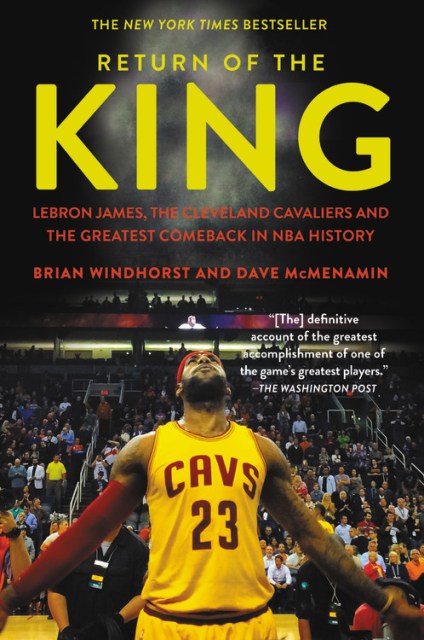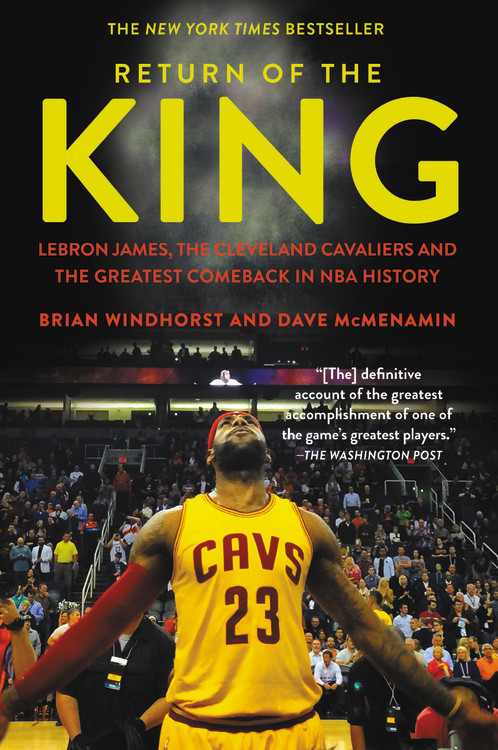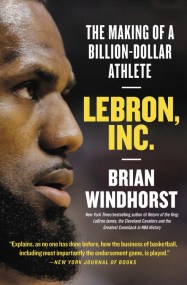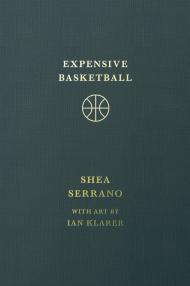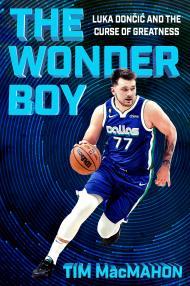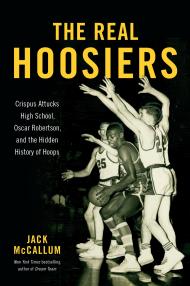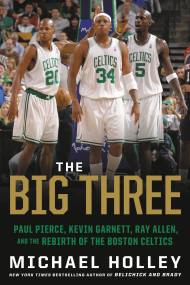By clicking “Accept,” you agree to the use of cookies and similar technologies on your device as set forth in our Cookie Policy and our Privacy Policy. Please note that certain cookies are essential for this website to function properly and do not require user consent to be deployed.
Return of the King
LeBron James, the Cleveland Cavaliers and the Greatest Comeback in NBA History
Contributors
By Dave McMenamin
Formats and Prices
- On Sale
- Apr 3, 2018
- Page Count
- 296 pages
- Publisher
- Grand Central Publishing
- ISBN-13
- 9781478971672
Price
$19.99Price
$25.99 CADFormat
Format:
- Trade Paperback $19.99 $25.99 CAD
- ebook $14.99 $19.99 CAD
- Hardcover $36.00 $46.00 CAD
- Audiobook Download (Unabridged) $27.99
This item is a preorder. Your payment method will be charged immediately, and the product is expected to ship on or around April 3, 2018. This date is subject to change due to shipping delays beyond our control.
Buy from Other Retailers:
Discover the untold stories behind LeBron James’s pivotal decision to leave Miami and return to the Cleveland Cavaliers. How did the Cavs strategically assemble their championship-caliber team, including the acquisition of star Kevin Love? Who orchestrated the controversial firing of coach David Blatt amidst their climb to first place? Uncover where the greatest comeback in NBA history truly began and climaxed.
Return of the King grants you exclusive access to private jets, locker-room revelations, and intense huddles, providing an insider’s view of one of basketball’s most remarkable sagas. Witness the Cavs’ remarkable journey to clinch the 2016 NBA title, overcoming a daunting three-game deficit against the Golden State Warriors.
Through candid interviews with players, executives, agents, and owners, gain insights into previously undisclosed accounts and controversies. This compelling narrative, narrated by seasoned reporters intimately involved in every twist and turn, captures the high-stakes drama and memorable Game Seven that defined a championship season.
-
"On the surface, this story may seem like it would only appeal to Cavaliers fans -- don't be dissuaded. The work illustrates the highs and lows necessary to reach the level of a champion, and will be the basketball book to own in 2017."Library Journal Starred Review
-
"[A] dishy and fun narrative...With lively writing and rich anecdotes that reveal the struggles that made the triumph anything but inevitable, Windhorst and McMenamin provide the definitive account of the greatest accomplishment of one of the game's greatest players."The Washington Post
-
"I've always admired Brian's acumen and his seasoned perspective. This story with Dave McMenamin of LeBron and the Cleveland Cavaliers' championship run is captivating and filled with spectacular detail."Tracy McGrady, 7-time NBA All-Star
-
"Brian Windhorst and Dave McMenamin are courtside and in the locker room for the most improbable comeback in NBA history. Through exhaustive, incisive reporting, the duo have delivered an important, essential book for all NBA fans."Jonathan Abrams, New York Times bestselling author of Boys Among Men: How the Prep-to-Pro Generation Redefined the NBA and Sparked a Basketball Revolution
-
"This account of how a championship was built is the best NBA book in many years."Booklist
-
"Brian Windhorst and Dave McMenamin don't just cover the NBA. They live it. And in RETURN OF THE KING, their storytelling has never been better. From the decision-making process in the Cavaliers' front office which led to LeBron James' return, to the assembly of a championship roster, to the players-only email from GM David Griffin with the Cavs down 3-1 in the NBA Finals, to the candid exchanges between LeBron and Tyronn Lue, there is nothing left uncovered. Man, what a compelling read!"Ernie Johnson, studio host of TNT's "Inside the NBA"
-
"On the court and off, the LeBron James journey back to Cleveland and back to a championship is one of the most intriguing stories in NBA history. Brian and Dave do a masterful job of adding context, details, and behind-the-scenes anecdotes to the signing, the season, and the series. RETURN OF THE KING is a great way to remember all that led up to the Finals and the greatest comeback."Mike Tirico, NBC's Thursday Night Football play-by-play and Olympics host
Newsletter Signup
By clicking ‘Sign Up,’ I acknowledge that I have read and agree to Hachette Book Group’s Privacy Policy and Terms of Use
